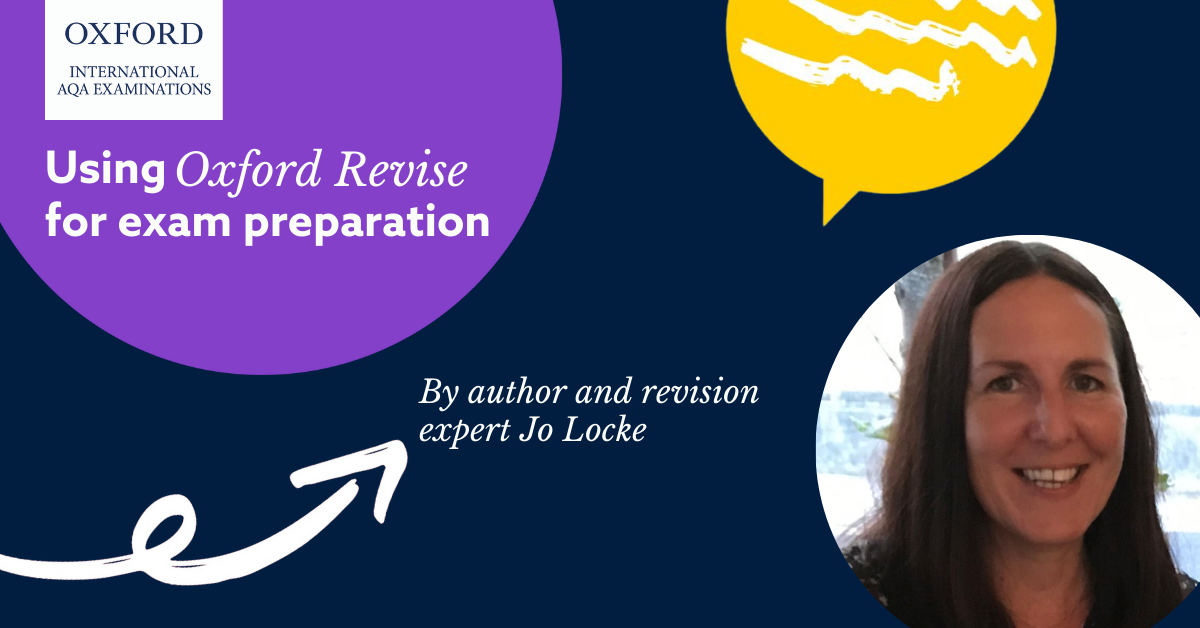With just a few months until the beginning of the May/June exam series, the countdown to exam preparation has most definitely started. And whether your students are preparing for their first set of mocks or already have a number of past papers under their belt, revision will definitely be top of everyone’s to do list.
This is more relevant than ever this year. Remote learning, and other pandemic-related restrictions, mean that students may have learned content more superficially than in previous years. Furthermore, you will also be factoring in the advance information and other contingency measures that will be in effect. As such, it is vital that you revisit key ideas from the specification to gain a deeper understanding of the concepts involved.
Which exam preparation works for students?
Encouraging students to reflect on their mock performance using a personalised learning checklist (PLC) will allow them (and you) to see where their areas of strength and weakness lie, and help focus revision. Students are often overwhelmed by wondering where to start with revision, especially in subjects like Science, where there is a large volume of knowledge they are required to understand and apply. It is therefore vital to direct students firstly to those parts of the specification where the greatest gains can be made.
Different approaches to revision work for different students, but in all cases, more active exam preparation means the information is more likely to stick. Scientific studies have repeatedly proved that endlessly re-reading notes has very little impact. Encouraging students to write down key ideas in their own words, talk through and justify their answers, explain what they have learnt and practise exam-style questions are all far more effective techniques for achieving success.
OUP has produced a suite of revision guides to support students revising for OxfordAQA International GCSE Science qualifications, with specific guides for Biology, Chemistry and Physics (publication date: end of March 2022). Click here to see the range of guides available.
Oxford Revise follows a proven three step approach to revision: knowledge, retrieval and practice.
Knowledge – learn the facts
Knowledge organisers summarise everything a student needs to know. The information is organised to show how different ideas fit together, flowing from one concept to the next. Students can even re-read these sections on the morning of an exam for final reassurance.
Retrieval – quick-fire questions to ensure knowledge is retained over time
Retrieval questions ensure key knowledge has stuck. Students can complete these questions regularly, for example by asking a friend or family member to test them. Retrieval questions can be done anywhere – at home, in class, even on the bus or in the car before school. As well as answering questions on the topic being revised, students should answer questions from previous topics. This ‘spaced learning’ is a proven method of exam preparation success; the more times knowledge is retrieved, the more it becomes secured in the long-term memory.
Each topic also includes a list of key terms. Students can use these to make flash cards, writing their definitions on the reverse and then testing themselves on key vocabulary. If there are concepts a student finds challenging, they could place these flash cards somewhere prominent in their house (the fridge door is often popular) to review regularly. As this knowledge is mastered, the cards can be swapped for new ones.
Practice – apply the knowledge by completing exam-style questions
The guides are packed with practice exam-style questions, along with tips on to how to answer them successfully. Answers and worked solutions are available online, so students can self-assess their responses. Questions are provided at four difficulty levels ranging from the simplest, to build confidence, to the most demanding, to stretch and challenge understanding. Each chapter also contains questions that link to previous subject matter, supporting knowledge retrieval and helping students build links between different topics.
Revision timetables
Finally, as final exams approach, you can support your students by helping them to produce a revision timetable, indicating which topics to recap and when. This will help them to organise their time to revise for all their subjects. There is no ‘right’ amount of time to revise but one key rule does apply: the more times content is revisited, the more it will be secured in their long-term memory.
We wish all your students the best of luck in the forthcoming exams and look forward to hearing about their success!
Jo Locke is a Biology teacher and author of many science school books, notably our new OxfordAQA International GCSE Biology Revision Guide, as well as Activate and AQA Activate and OCR GCSE Biology.
Want more tips to help support your students with their OxfordAQA examinations? Register for our free Marking Guidance webinars in March. These subject-specific sessions provide a detailed overview of marking process for each qualification, and have also been extended to cover revision and exam skills to help you prepare your students for success in the May/June 2022 series.
